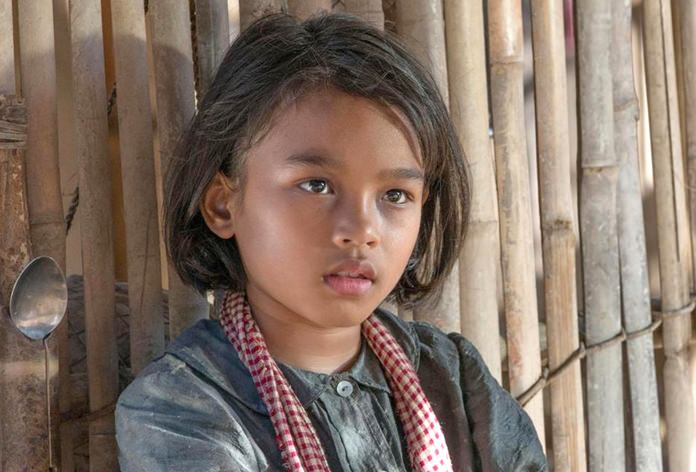
Los Angeles (AP) – By now, there should be no debating that Angelina Jolie is a talented director, capable of handling the most challenging subject matter with assurance and sensitivity. Those who continue to denigrate her skills because she’s also a movie star and tabloid fixture are running out of ammunition.
Support Pattaya Mail – Click Here
There also should be no debating the value of a major film being made about the Cambodian genocide under the Khmer Rouge — a film shot in Cambodia, and in the Khmer language, to boot. Or that without Jolie’s commitment and clout, “First They Killed My Father: A Daughter of Cambodia Remembers” would never have been made.
This story of a young girl’s experiences under the murderous regime, based on the memoir by Loung Ung, is close to Jolie for many reasons: She’s had a strong connection to the country since she filmed a movie there in 2000. She adopted her eldest son there (Maddox is listed as an executive producer), started a foundation there, even received citizenship there, and is a friend of the author. All this means that she is extremely familiar with Cambodia and its story, and this is both the movie’s great strength and its occasional weakness.
Why weakness? Because the film presupposes a knowledge of the history that many in a broad mainstream audience — particularly young people — likely lack. And that distance from the story blunts its power somewhat. Simply put, a little more guidance at the right places — we don’t want to call it hand-holding — might have been in order.
There’s another storytelling challenge here. Jolie, who co-wrote the screenplay with Ung, is aiming to tell the story through the eyes of a child, aged 5 to 9. As Jolie herself has said, “a child experiences more than she talks.” It’s true that there’s not a lot of dialogue here, and that for the movie’s two-plus hours, we’re learning — and growing — along with Loung. There may be moments where we’re impatient for answers, but the film asks that we wait, and learn them when and if Loung does.
We begin with a brief preface, a montage set to the Rolling Stones’ perhaps overused “Sympathy for the Devil,” referring to the unofficial U.S. bombing of Cambodia and President Richard Nixon’s 1971 remark that “what we are doing is helping the Cambodians help themselves.” We then see a child’s face reflected in the TV screen. This is Loung (Sreymoch Sareum), and now her eyes will be ours.
The family is well off; Loung’s father is in the military police. But it is 1975, and everything is changing. The Khmer Rouge has captured Phnom Penh, beginning a four-year regime under which an estimated 1.7 million Cambodians will die from starvation, disease or execution. The family is forced to leave the city. “Can we take our New Year’s dresses?” Loung asks.
The family treks to the countryside, trying desperately to hide the father’s association with the toppled regime. (Loung’s father and mother are played movingly by Kompheak Phoeung and the beautiful Socheata Sveng.) Loung is quickly disabused of the notion that the family is only going to leave home for a few days. They, and their compatriots, will now be in the service of the Khmer Rouge, and its Maoist plan to eliminate the elite and transform the country into an agrarian utopia.
They arrive at a rural camp, where food is virtually nonexistent. They must build their own homes. It’s not long before the family will be split apart, and the title will come true — although this development, like much of the terrible violence that transpired, is shown only briefly in a dream sequence. (Another dream sequence shows Loung faced with a table of luscious sweets, trying to eat it all.) We will follow Loung as she is gradually separated from everyone and finds herself training to be a child soldier.
That training will help Loung survive one of the most devastating moments of the film, caught in the middle of a minefield. And suddenly a little girl knows what all the others do not, which is that the ground underneath can kill you.
As we know from the book, Loung was eventually reunited with some of her siblings, and the sequence at the end, with the adult family at a memorial, is very moving. This is a story that has not been told enough. Jolie’s effort — minor flaws and all — will ensure that many more people understand it.
“First They Killed My Father,” a Netflix release, is unrated by the Motion Picture Association of America. Running time: 136 minutes. Three stars out of four.





